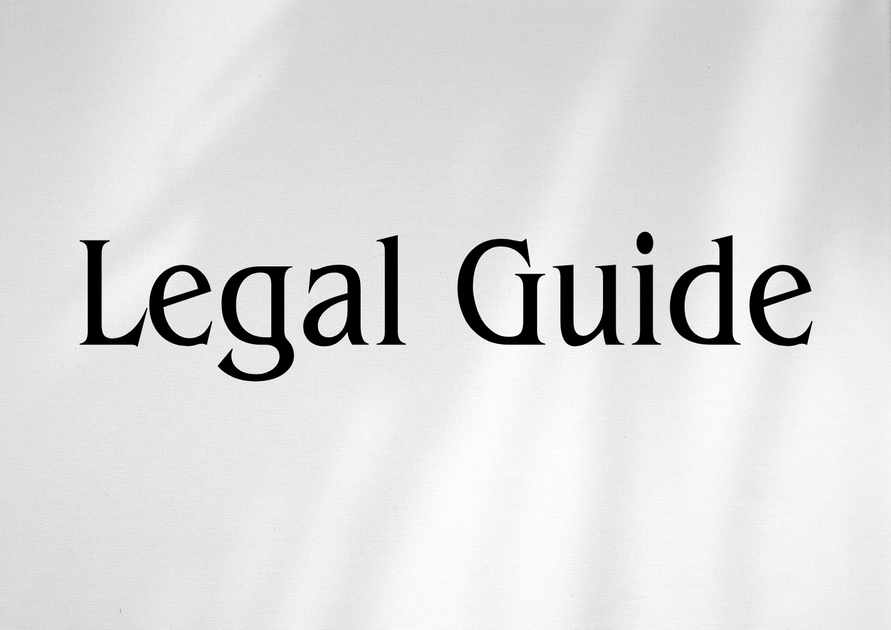Introduction: The New Landscape of UBO Compliance in the UAE
Over the past few years, the landscape of corporate compliance in the United Arab Emirates (UAE) has undergone a profound shift, particularly with respect to Ultimate Beneficial Ownership (UBO) regulations. Driven by the imperative to align with international best practices in anti-money laundering (AML) and counter-terrorism financing (CTF), and to enhance business transparency, the UAE has introduced a suite of robust legal frameworks. These changes affect virtually all businesses operating within the UAE, from family-owned companies to major multi-national corporate groups. Awareness and proactive compliance are no longer optional; they are central to maintaining legal standing and business credibility.
This article provides a comprehensive and practical guide for businesses, corporate executives, compliance officers, and legal practitioners navigating UBO compliance under UAE law. We utilize an expert legal consultancy lens to explain the evolving regulatory requirements, analyze recent legal updates, and offer actionable strategies. Whether you are preparing for regulatory scrutiny or seeking to enhance your company’s governance framework, this analysis equips you with the authoritative guidance your organization needs—and ensures you remain ahead of the compliance curve in the UAE’s dynamic business environment.
Table of Contents
- Overview of UBO Regulation in the UAE
- Key Legal Sources and Recent 2025 Updates
- Defining the Ultimate Beneficial Owner under UAE Law
- Scope of Application: Entities and Exemptions
- UBO Register and Filing Obligations
- Practical Compliance Processes and Considerations
- Comparison Table: Old vs New UBO Laws
- Risks of Non-Compliance and Penalty Matrix
- Case Studies and Practical Examples
- Effective Strategies and Best Practices
- Conclusion: The Road Ahead for UBO Compliance in the UAE
Overview of UBO Regulation in the UAE
The UAE’s UBO regime is a cornerstone of its strategy to foster a transparent and attractive business environment. First introduced by Cabinet Resolution No. 34 of 2020 regarding the Regulation of the Real Beneficiary Procedures, the framework mandates all UAE entities (with certain exceptions) to maintain, update, and file information regarding their Ultimate Beneficial Owners, shareholders, and managers. This push toward transparency is part of the UAE’s commitment to comply with global AML/CTF standards, as outlined by the Financial Action Task Force (FATF).
Recent legal developments, including the anticipated enhancements in “UAE law 2025 updates,” further reinforce the need for meticulous compliance. These updates introduce heightened reporting requirements, more defined penalties, and expanded regulatory scrutiny, signaling to businesses the gravity of UBO compliance within UAE’s economic ecosystem.
Key Legal Sources and Recent 2025 Updates
Principal Legislation and Official Guidance
The core legal instruments governing UBO compliance in the UAE include:
- Cabinet Resolution No. 34 of 2020 (Regulation of Real Beneficiary Procedures)
- Cabinet Resolution No. 58 of 2020 (Amending Certain Provisions of Cabinet Resolution No. 34 of 2020)
- Federal Decree-Law No. 20 of 2018 (On Anti-Money Laundering and Combating the Financing of Terrorism)
- Ministerial Circulars and Guidance (Issued by the Ministry of Economy and relevant Free Zone Authorities)
Additional legal updates—collectively referred to herein as the “UAE law 2025 updates”—are anticipated to tighten controls further, streamline reporting lines, and introduce digital compliance frameworks, as announced by the UAE Ministry of Justice and published through the UAE Government Portal and the Ministry of Economy.
Regulatory Objectives
The principal aim of these regulations is to ensure that the UAE is not used as a safe haven for illicit financial flows, while also providing stakeholders and regulators with a transparent snapshot of ultimate ownership for every entity established in the country. This is crucial for satisfying international banking, investment, and compliance requirements.
Defining the Ultimate Beneficial Owner Under UAE Law
The Legal Definition
Under Cabinet Resolution No. 34 of 2020—as amended—a UBO is generally understood to be any natural person who ultimately owns or controls a legal entity, either directly or indirectly, by holding 25% or more of the shares, voting rights, or by exercising ultimate control through other means, including contractual arrangements.
Where no individual meets the 25% threshold or cannot be identified conclusively, the natural person exercising ultimate managerial control (e.g., the director or manager) is deemed to be the UBO for reporting purposes.
Interpretive Insights for Complex Ownership Structures
In practice, determining the UBO may require navigating multi-layered holding structures, trusts, or nominee arrangements. The law’s broad wording is designed to capture all beneficial interests, not simply those resulting from straightforward shareholding. This underscores the necessity for thorough due diligence, particularly in corporate groups with offshore or multi-jurisdictional elements.
Scope of Application: Entities and Exemptions
Who Must Comply?
The UBO obligations apply to all entities incorporated or registered in the UAE, including onshore and free zone companies, with the notable exceptions of:
- Companies wholly owned by the UAE federal or local government, and their subsidiaries.
- Entities established in financial Free Zones (such as the Dubai International Financial Centre [DIFC] and Abu Dhabi Global Market [ADGM]), which have their own robust UBO frameworks aligned with international standards.
Implications for Multinational Groups and Limited Partnerships
Multinational groups and complex holding structures operating through UAE-registered subsidiaries or branch offices are to ensure that each UAE-resident legal entity maintains its own UBO register, regardless of the parent company’s jurisdictional transparency standards. The law also extends to limited partnerships, provided they are recognized as legal persons under UAE law.
UBO Register and Filing Obligations
Maintaining the UBO Register
All in-scope UAE entities are required to:
- Maintain a UBO Register indicating the details of each Ultimate Beneficial Owner.
- Establish a Register of Partners/Shareholders and a Register of Directors/Managers.
- Keep records updated—changes must be reflected within 15 days of their occurrence.
Required information includes:
- Full name, nationality, date of birth, and residential address of the UBO
- Identification document (passport/Emirates ID) details
- Date of acquiring UBO status and basis for control
- For indirect interests: Details of the ultimate chain of ownership or control
Filing and Reporting Deadlines
Entities must file the UBO and Partner Registers to the applicable licensing authority (Department of Economic Development [DED], relevant Free Zone Authority) and update these records within the prescribed timeframes. Annual declarations and ad hoc updates have been strengthened in the 2025 updates to require prompt attention to any change in ultimate control or ownership.
Access and Confidentiality
UBO information is not made public but is accessible to regulatory authorities for AML/CTF enforcement and international cooperation. Unauthorised disclosure or mishandling of the register carries penalties under the Federal Decree-Law No. 20 of 2018 and corresponding guidelines.
Practical Compliance Processes and Considerations
Steps for Compliance
- Conduct internal ownership due diligence to identify UBO(s).
- Prepare and maintain the UBO Register in both English and Arabic (where required).
- Implement robust KYC (Know Your Customer) procedures for all material shareholders and directors.
- Monitor corporate changes—such as share transfers, restructuring, or changes in management—and update registers accordingly within 15 days.
- File all required information with the relevant licensing authority on an annual and ad hoc basis.
Visual Suggestion: A flow diagram illustrating the end-to-end UBO registration process, from internal identification through to filing and periodic updates, may be placed here. This visual greatly enhances stakeholder understanding of sequence and accountability.
Consultancy Best Practices
- Schedule regular internal audits of the UBO register to ensure data accuracy.
- Engage external advisors for challenging or multi-jurisdictional ownership chains.
- Train key staff on their legal obligations under the UBO regime.
Challenges in Identifying UBOs
Corporate entities often face challenges when the ownership structure includes foreign holding companies, trusts, nominee arrangements, or complex joint ventures. The Ministry of Economy and DEDs have issued technical guidance on legitimate reliance upon declarations and supporting documentation, but the ultimate responsibility remains with the UAE entity to conduct “reasonable steps”.
Comparison Table: Old vs New UBO Laws in the UAE
With the introduction and anticipated amendment of regulations up to 2025, it is crucial to understand the evolution of UBO compliance requirements. The table below presents a structured comparison:
| Aspect | Original Law (Cabinet Res No. 34/2020) | Amended/2025 Update |
|---|---|---|
| Threshold for UBO | 25% direct/indirect ownership/control | No change to threshold, but clarified definition of “control”; digital reporting required |
| Entities Covered | All UAE entities except government and financial Free Zone entities | Expanded to include certain partnerships and joint ventures; clearer exemptions |
| Data Maintenance | Physical or electronic register; annual review | Mandatory digital register and increased auditability |
| Filing Deadline for Changes | 60 days from change | 15 days from change (under 2025 updates) |
| Penalties for Non-compliance | Fines, possible suspension | Increased fines, public blacklisting, operational suspension |
Risks of Non-Compliance and Penalty Matrix
Regulatory and Legal Risks
Failure to comply with UBO obligations exposes UAE entities and their responsible officers to significant regulatory risk, including:
- Fines ranging from AED 50,000 to AED 1 million per violation (per latest Ministry of Economy and Federal Legal Gazette updates)
- Suspension of business licenses and administrative prohibitions on company operations
- Mandatory disclosure and public blacklisting in egregious cases of willful non-compliance
- Potential criminal liability under Federal Decree-Law No. 20 of 2018 for facilitating illicit financial flows or knowingly concealing beneficial ownership
Penalty Table
| Violation | Original Penalty | 2025 Update Penalty |
|---|---|---|
| Failure to Maintain UBO Register | AED 50,000 | AED 100,000 + license suspension |
| Incomplete/False UBO Reporting | AED 100,000 | AED 250,000 + referral for investigation |
| Failure to Update Changes Timely | AED 20,000 | AED 50,000 + compliance order |
Visual Suggestion:
A “penalty matrix” visual or infographical table could be inserted here, highlighting the scale of risks and reinforcing the need for diligent oversight by management and compliance teams.
Case Studies and Practical Examples
Case Study 1: Complex Offshore Structure
Scenario: A Dubai-registered trading company is owned 60% by an offshore British Virgin Islands company and 40% by a UAE national. The BVI company is, in turn, controlled by a trust with multiple beneficiaries.
Compliance Approach: The UAE entity must exercise rigorous due diligence to trace the chain of control up to the ultimate natural person(s) (UBO) behind the trust. All KYC documents and ownership evidence should be securely archived, and details—such as beneficiary lists, control appointments, and trustee declarations—carefully reviewed and reflected in the UBO register. Failure to “pierce the corporate veil” can result in severe penalties.
Case Study 2: Failure to Timely Update Registers
Scenario: An Abu Dhabi mainland LLC undergoes an intra-group restructuring, transferring 30% of its shares to a new group holding company. The company files its annual declaration but neglects to file the update within 15 days as required under 2025 rules.
Implications: This breach exposes the LLC to escalating fines and potential operational suspension. The company must implement automated compliance reminders and assign clear internal accountability to avoid recurrence.
Case Study 3: Small Family-Owned Business
Scenario: A family owns 100% of a Sharjah-based onshore SME, with shareholdings distributed equally between four siblings. Each holds 25% and is a director.
Compliance Insights: All four qualify as UBOs, and the company must record and update each individual’s details. Annual declarations, as well as event-driven changes (such as inheritance), should be monitored—underscoring that UBO law is not just for conglomerates or foreign entities.
Effective Strategies and Best Practices
1. Holistic Ownership Review
Companies should perform a comprehensive review of their ownership and management structures at least annually. This exercise should consider both formal and informal means of control, including shareholder agreements, board control, and veto rights.
2. Up-to-Date Internal Policies
Draft and regularly update an internal policy manual on UBO compliance. Ensure that all staff involved in legal, compliance, and finance functions are aware of and adhere to procedures regarding UBO collection, storage, review, and disclosure.
3. Engagement with Advisors and Regulators
When dealing with non-traditional or complex shareholding structures, obtain external legal or consultancy input, and, where necessary, seek private clarifications from the Ministry of Economy or the relevant authority. This minimizes the risk of regulatory misinterpretation.
4. Use of Digital Compliance Tools
Leverage digital platforms and KYC databases wherever possible to automate reminders, securely store documents, and facilitate efficient reporting—especially given the digital reporting mandates anticipated under the 2025 amendments.
Checklist: UBO Compliance Essentials
| Compliance Task | Status |
|---|---|
| Thorough beneficial ownership review completed | ☐ |
| All registers maintained and accurate | ☐ |
| Annual and change-driven filings conducted on time | ☐ |
| All KYC/supporting documents securely archived | ☐ |
| Staff training in place | ☐ |
This checklist can be used as an internal audit or onboarding tool to ensure ongoing compliance and to demonstrate a governance culture to regulators and banking partners.
Conclusion: The Road Ahead for UBO Compliance in the UAE
The UAE’s UBO regulations have become a critically important component of the country’s corporate legal environment. Driven by both domestic and international priorities, these rules underpin the jurisdiction’s reputation as a transparent, reliable, and secure place to do business. Amendments and enhancements up to and including the anticipated 2025 updates bring sharper legal scrutiny, tighter timelines, and increased penalties—signaling that UBO compliance is not a box-ticking exercise but an ongoing element of good governance.
For businesses, the message is unequivocal: invest in robust internal controls, engage in proactive due diligence, and seek professional guidance when navigating complex structures or ambiguous situations. As the regulatory environment continues to evolve, those companies that embrace compliance will be best positioned to access international markets, maintain critical banking relationships, and avoid the reputational and financial risks of enforcement action.
In summary, a diligent approach to UBO compliance is no longer optional, but a strategic necessity for every entity operating or investing in the UAE. Continuous vigilance, frequent internal audits, and a culture of transparency will distinguish compliant businesses and ensure long-term success in one of the region’s most dynamic economies.




